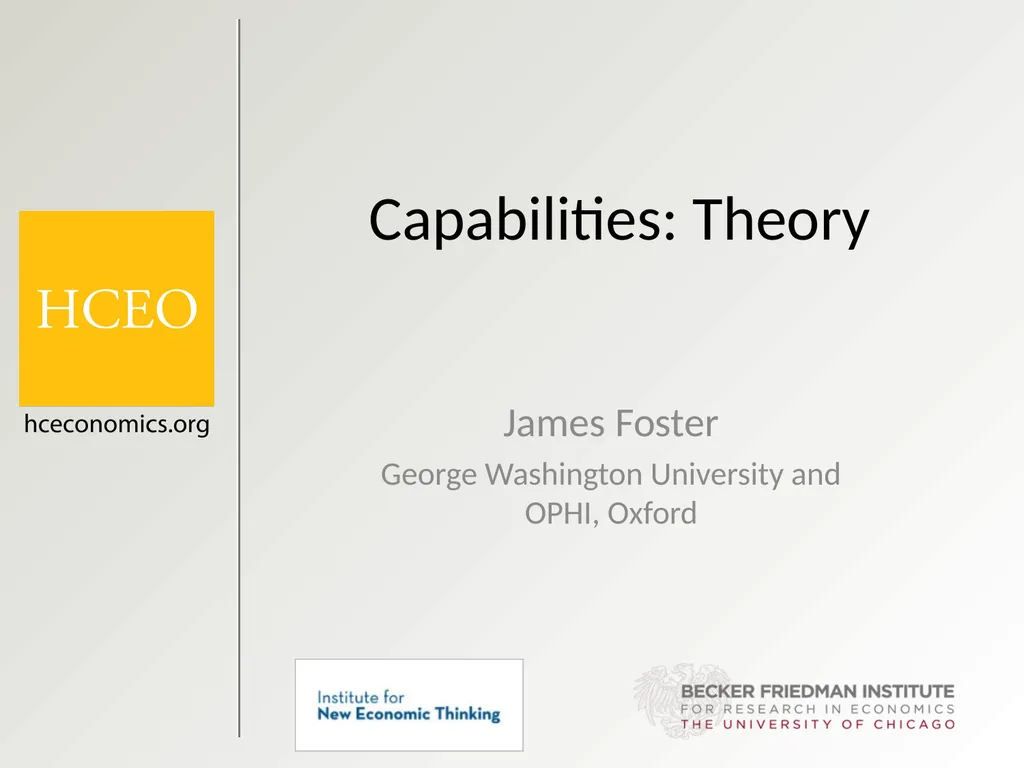
Author : liane-varnes | Published Date : 2025-05-30
Description: Capabilities: Theory James Foster George Washington University and OPHI, Oxford Guide Formalization 28 29 30 Motivation What is wellbeing? What is the right space for evaluating inequalities? Sens Answer Functionings Beings and doingsDownload Presentation The PPT/PDF document "" is the property of its rightful owner. Permission is granted to download and print the materials on this website for personal, non-commercial use only, and to display it on your personal computer provided you do not modify the materials and that you retain all copyright notices contained in the materials. By downloading content from our website, you accept the terms of this agreement.
Here is the link to download the presentation.
"Capabilities: Theory James Foster George"The content belongs to its owner. You may download and print it for personal use, without modification, and keep all copyright notices. By downloading, you agree to these terms.













